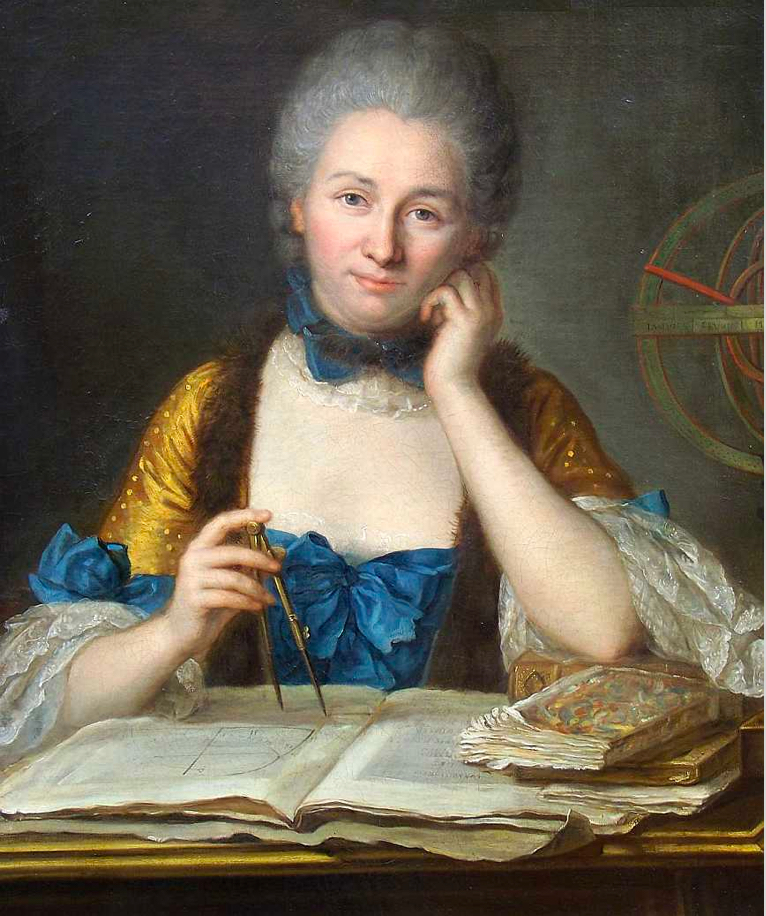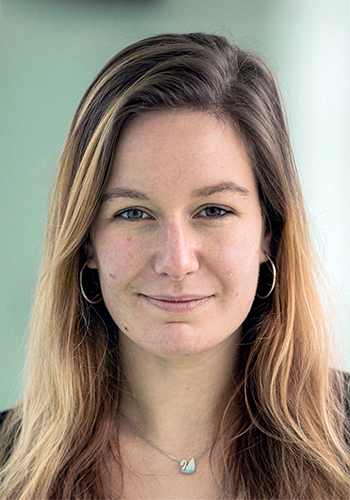
Why tech?
My relationship with technology began very early: my two parents who were computer
engineers and I was dived into it during childhood. I quickly developed a passion for these
tools and loved using them. Unfortunately, influenced by stereotypes about tech careers,
especially about the place of women in the field, I initially chose to pursue natural sciences
and medical studies. But after a few years, I decided to return to my first passions and
combine medical sciences with computer science. It’s a fascinating field where I thrive by
solving problems: I particularly enjoy tackling logical and mathematical challenges and
knowing that my work is both novel and potentially useful to society.
Your background?
As I mentioned earlier, my scientific journey had its ups and downs. I started with a sciencefocused high school diploma, followed by medical studies. I then discovered bioinformatics, a field that immediately captivated me due to its connection between health and technology.
After a master’s degree in bioinformatics, I went on to pursue a PhD in artificial intelligence applied to medical imaging. Today, I am a postdoctoral researcher continuing my work at the intersection of science, healthcare, and tech.
Your first professional experience in tech?
My first professional experience in tech was a summer job. My father worked at the Armies Ministry, and I was hired as an IT support technician. That’s when I realized just how maledominated this field still is, especially in technical and defense sectors.
What do you do today, and why?
Today, I’m a postdoctoral researcher. Research is a true passion for me, and my goal is to secure a position as a research fellow. To achieve that, I want to deepen my expertise in the complex topics of my current project so that I can eventually lead research projects and pass on this knowledge.
Your strengths for this position?
I’m persistent and perfectionist, sometimes a bit too much! I’m also good at multitasking, which is essential in a profession where you have to juggle research, scientific writing, and teaching.
Past challenges, failures, moments of solitude?
In the third year of my PhD, I fell in love with a research lab. I contacted them for an interview, but afterwards, I had mixed feelings. They never followed up, and it took me a
month to accept their silence. It was a big disappointment because I had already pictured myself in that new role. Dealing with rejection and uncertainty is unfortunately part of an academic career, but it’s never easy.
Your best moments, the successes you're proud of?
My thesis defense remains an unforgettable moment, despite a few technical hiccups. I had rich and exciting discussions, and for the first time, I truly felt like a researcher. That year, I also received two awards: Best Poster at a conference and the L’Oréal-UNESCO For Women in Science Young Talents award. These are powerful, emotional moments — especially when you get that call or see your name among the winners.
People who helped/made an impression or made life difficult?
My PhD supervisors, Camille Maumet and Elisa Fromont, gave me immense support and encouragement. I owe them a lot. And I’ll never forget my very first mentor, Warith Harchaoui, who welcomed me for an introductory internship in machine learning when I had no programming experience. He believed in me even before I knew what I was capable of.
Your upcoming goals and challenges?
I want to return to France and secure a research fellow position. It’s both a personal and professional challenge that really drives me.
What do you do outside of work?
I’m totally addicted to TV series — there’s always one playing in the background at home. I also love reading, doing sports, traveling, and working on personal projects, especially in web development.
Your fictional or historical heroes/heroines?
Dr. Temperance Brennan from the TV series Bones. She embraces her nerdy, different side and intellectual superiority without denying her human vulnerabilities.
Your favorite motto?
“Do it, and we’ll see.” A motto for those who learn by doing, without waiting to master
everything in advance.
A book to take to a desert island?
I’d take Foundation by Isaac Asimov. It’s more than just a series of novels: it’s a reflection on science, power, and the long term. What I love is how science is portrayed as a structuring, almost political force — the foundation of society that justifies everything.
A message or advice for young women?
Don’t let yourselves be boxed in by stereotypes! Dare to explore, step outside the lines, and focus on what you truly love. Career orientation isn’t about choosing a job that sounds impressive or dreamy on paper — it’s about finding a path that reflects who you are, stimulates you, and in which you’ll thrive.

